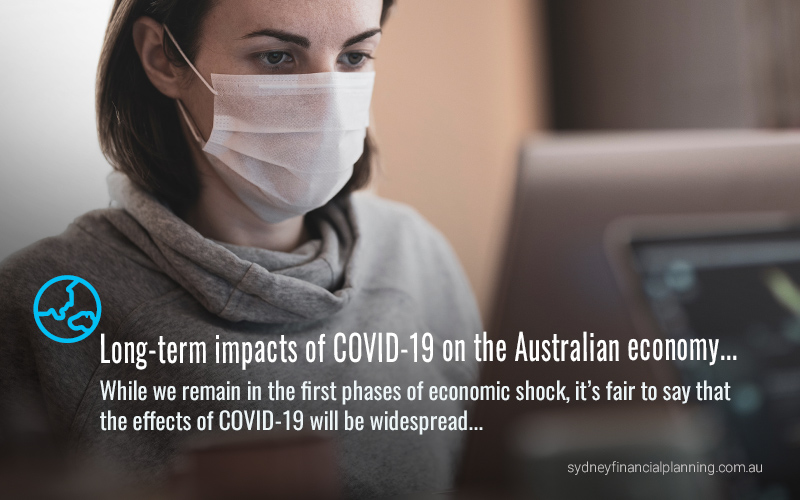As Australia continues to weather the COVID storm, it’s easy to only focus on the present.
While we remain in the first phases of economic shock, it’s fair to say that the effects of COVID-19 will be widespread and felt for a long time to come.
Workforce and industry
COVID-19 has had a heavy impact on Australia’s employment landscape. Recent figures indicate a7.4%unemployment rate, and while job losses are hitting families hard in the short-term, these workforce shifts are also shaping how industry and employment will look in the future.
Certain sectors, like aviation and tourism, might never be the same again. Increasingly, organisations are being forced to make structural changes - operations are being moved online, and businesses are automating processes typically performed by humans. Now that these difficult changes have been made, it’s likely some of them will become permanent even after COVID. This is particularly true in the hardest-hit sectors of hospitality and retail, where businesses will need to transform to survive, changing the landscape of these industries for the long-term.
Globalisation, trade and population growth
Short-term travel restrictions and disruption to the global supply chain have driven governments around the world to reassess their stance on globalisation. Production of some goods will be moved onshore, particularly those that are deemed of national significance like healthcare products, and there will be more slack built into supply chains to account for reduced reliability. Most significantly, Australia will feel the impact of a vast reduction in migration, with the Prime Minister estimating that 34,000 migrants will arrive in the country in the year to come - a staggering drop from the 533,500 who arrived in 2019. A lack of migrants over the longer-term will result in population decline and a reduced workforce that could have an enduring economic impact on the healthcare, tourism, housing, and agricultural sectors.
Education and skills
The pandemic will have a lasting effect on a generation of learners. International students aren’t arriving, domestic students are learning over Zoom and tertiary institutions are losing money and staff at a rapid rate. A crisis in higher education could have long-term impacts on thestructure of the sector and some institutions may not survive. But it isn’t all necessarily bad news. Rapid, innovative training courses could begin to take the place of the traditional Bachelor’sdegree, as school-leavers get the skills they need to enter a fast-evolving workforce and keep Australia competitive in key industry sectors.
Australia is going through a difficult time, but it’s important that we keep our attention focused on long-term growth and recovery.
Do you need to discuss how best to set yourself up for the future?
Why not book an appointment with one of our planners to review your situation, contact us on 02 9328 0876.
General Disclaimer: This article contains information that is general in nature. It does not take into account the objectives, financial situation or needs of any particular person. You need to consider your financial situation and needs before making any decisions based on this information. Please seek personal financial advice prior to acting on this information.
Photo by Engin Akyurt on Unsplash

